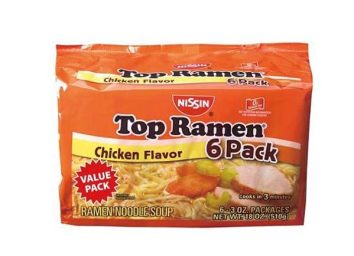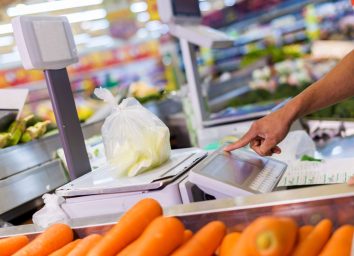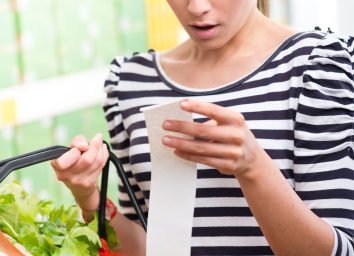25 Grocery Shopping Mistakes Making You Gain Weight
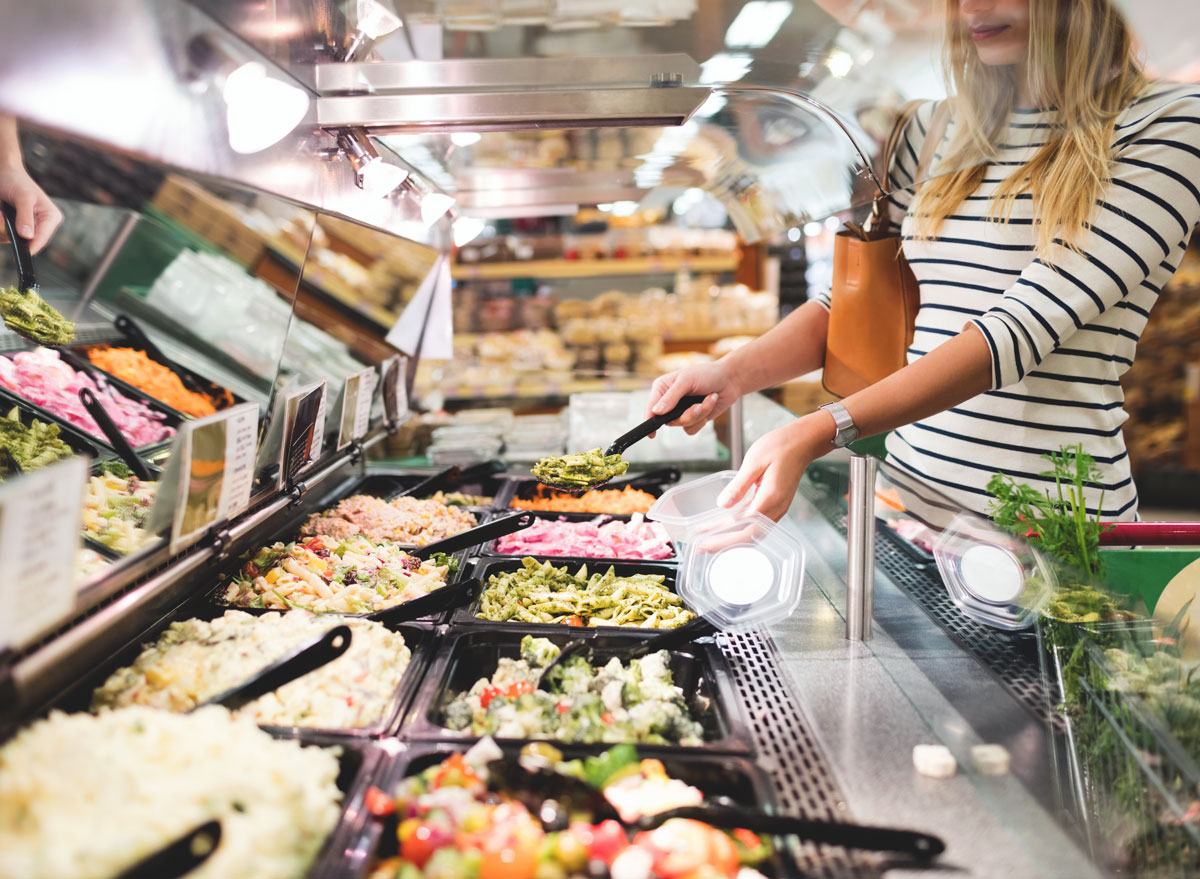
The grocery store is the great equalizer: no matter your age, gender, race, or socioeconomic status, you're bound to spend at least some of your time perusing its aisles on a regular basis. In fact, according to the Bureau of Labor Statistics, the average American spends upwards of five hours a week shopping.
And while you might assume that, after so many years of loading up your cart and heading to the checkout, you've more or less gotten the hold of things, there are likely dozens of critical errors you're making every time you set foot in a supermarket. From picking up free goodies along the way to navigating the wrong aisles, these grocery shopping mistakes could be one of the sneaky reasons you're gaining weight.
If you want to get healthier and slim down in a hurry, start by avoiding these 25 mistakes you're making at the grocery store. And if you're looking to find hacks for better ways to shop, don't miss these shopping secrets supermarket employees will never reveal.
You shop at big box stores.

We may think that buying in bulk is a good way to save money, but in the long run, it can lead to overeating and waste. When we're presented with larger serving sizes, like a family-size bag of chips, we're more likely to overindulge than when we're given a more petite portion. Even worse, research from the National Bureau of Economic Research found that the prevalence of restaurants and big-box grocers, such as Costco, contributes to weight gain. "Food's gotten cheaper and more readily available, so we eat more of it. It's really simple," one of the study's coauthors, Charles Courtemanche, a health economist at Georgia State University, told NPR.
STAY INFORMED: Sign up for our newsletter to get the latest food news delivered straight to your inbox.
You don't read nutrition labels.
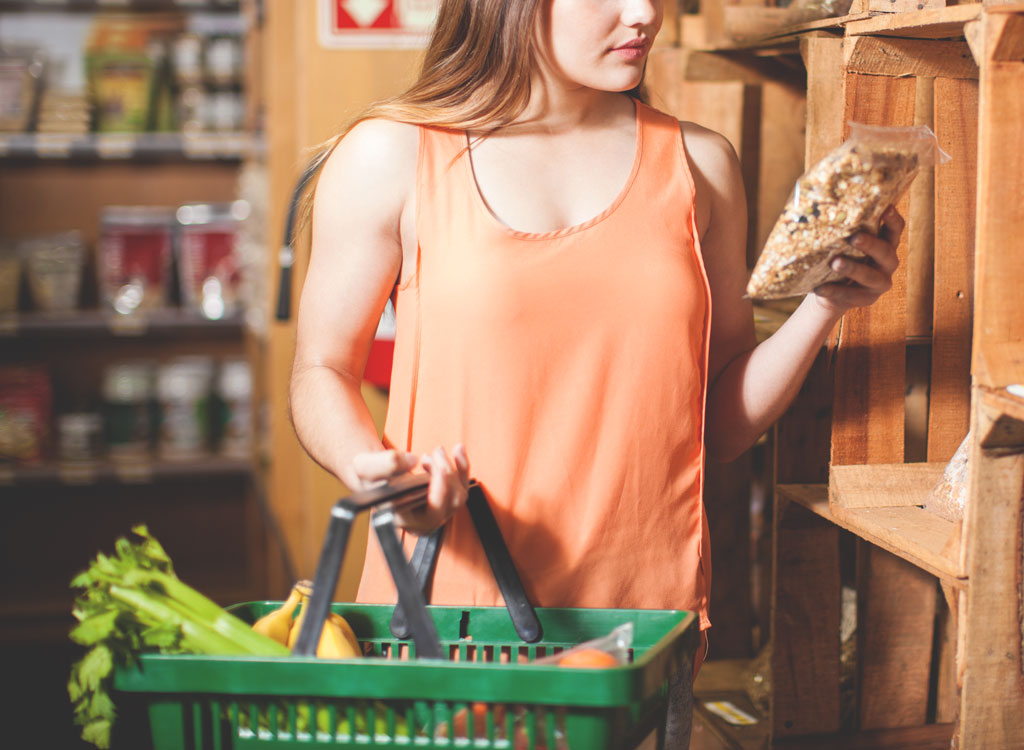
Just because something's on your shopping list doesn't mean you should put it into your cart without checking the label first. Many of the products you buy every day could be loaded with high levels of sugar, inflammatory fats, and harmful pesticides. Reading the label helps you become an informed consumer and keeps you from accidentally adding junk food posing as healthy stuff to your cart. In fact, an Agricultural Economics study analyzing a large-scale National Health Interview Survey by the Centers for Disease Control and Prevention revealed that women who read nutrition labels are more likely to stay slim in the long run.
You grab free samples.

Those free samples at the grocery store aren't really free—your body is paying for them, at least. Even if the snack sample you're grabbing seems small, without nutrition information in front of you, you could be adding hundreds of calories to your daily calorie budget. To add insult to injury, you're also more likely to overeat these delicious samples; research published in the American Journal of Clinical Nutrition suggests that distracted snacking (like when you're idly munching at the grocery store) can lead to overeating.
You shop while hungry.
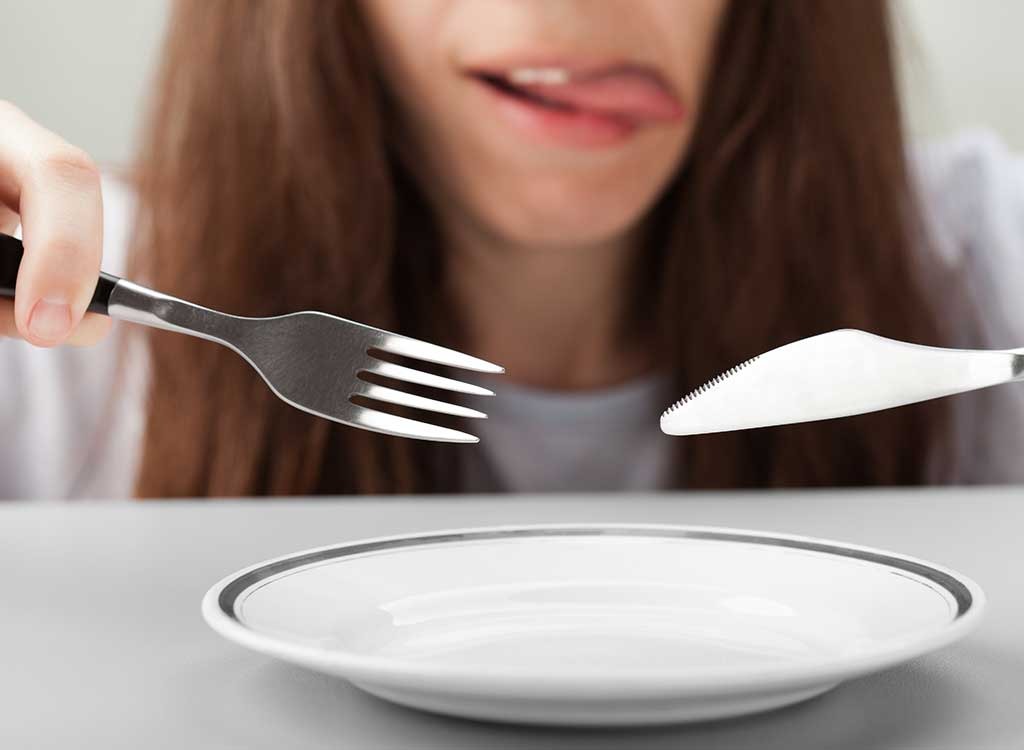
If you're hungry before you hit the grocery store, you might want to wave goodbye to your willpower. Shopping while hungry is a recipe for grabbing convenience foods and snacks you'd otherwise avoid. In fact, you're more likely to make non-food purchases when hungry, according to a Proceedings of the National Academy of Sciences study. Make healthier choices while shopping by eating something small, like an apple or a handful of nuts, before you hit the shop—in fact, research published in Nutrition Journal suggests that choosing the former can actually reduce the total number of calories you consume in a day and help you shed some weight.
You shop without a grocery list.

According to Wharton researchers, 20 percent of purchases at the supermarket are unplanned. And while riffing is great for jazz solos or stand-up comedy, at the grocery store, it can get you into serious trouble. When you're not using a list, the grocery store is your oyster, and giving into temptation is virtually inevitable. In a survey of 2,000 consumers, 70.5 percent of respondents said that their most impulsive purchases tend to be food, as reported by CNBC. Before you head to the store, make a list, and whenever possible, bring cash instead of cards so you won't be tempted to buy extra items.
You shop the center aisles.
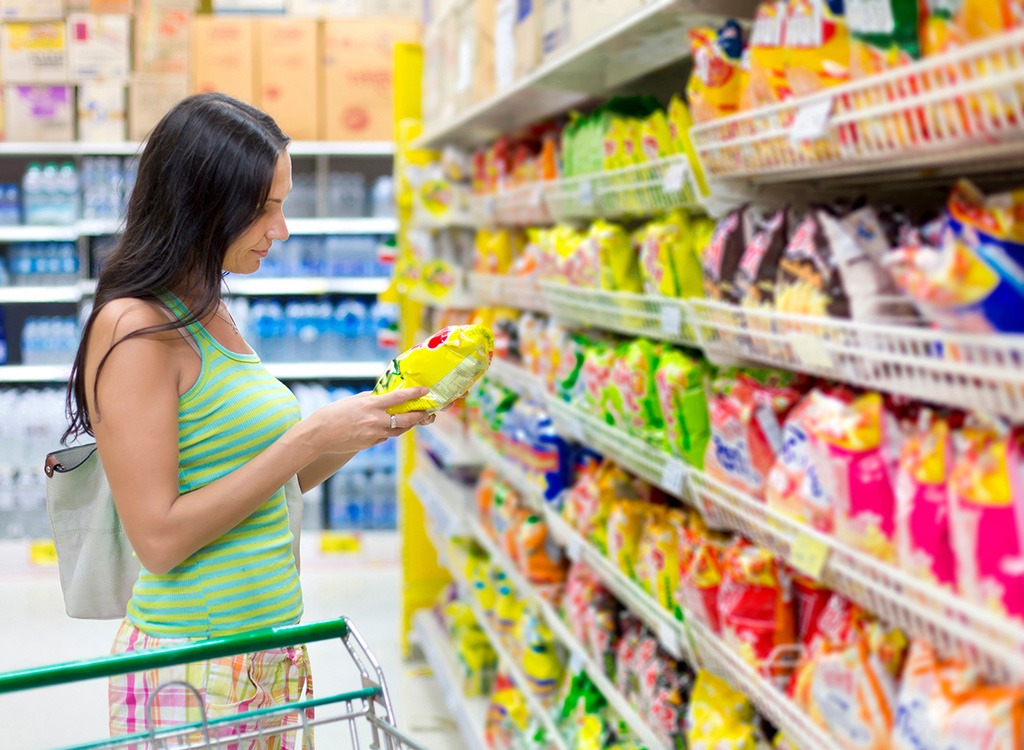
While it may seem like it makes the most sense to travel up and down every aisle in the grocery store, doing so may be causing you to pack on pounds. The center aisles are generally where junk foods, like chips, candy, and soda, are shelved, making them a must-avoid for impulsive shoppers. Shopping around the perimeter of the store, where fruits, vegetables, and lean meats are more likely to be located, can help keep you from giving into the little voice telling you to buy that carton of ice cream. And while you're in the produce section, be sure to pick up some of the healthiest foods on the planet.
You choose foods based on packaging, branding, and labels.

Packaging designers should get some serious credit for their work, because they're convincing us to buy a whole lot of junk. In fact, Cornell University researchers found that cereal mascots, like the Trix rabbit, who make eye contact with purchasers drove 16 percent more brand loyalty among cereal boxes. While it may be difficult to keep yourself from tossing something with exceptionally cute packaging in your cart when you see it, doing so will keep you healthier in the long run.
You buy food from the salad bar.
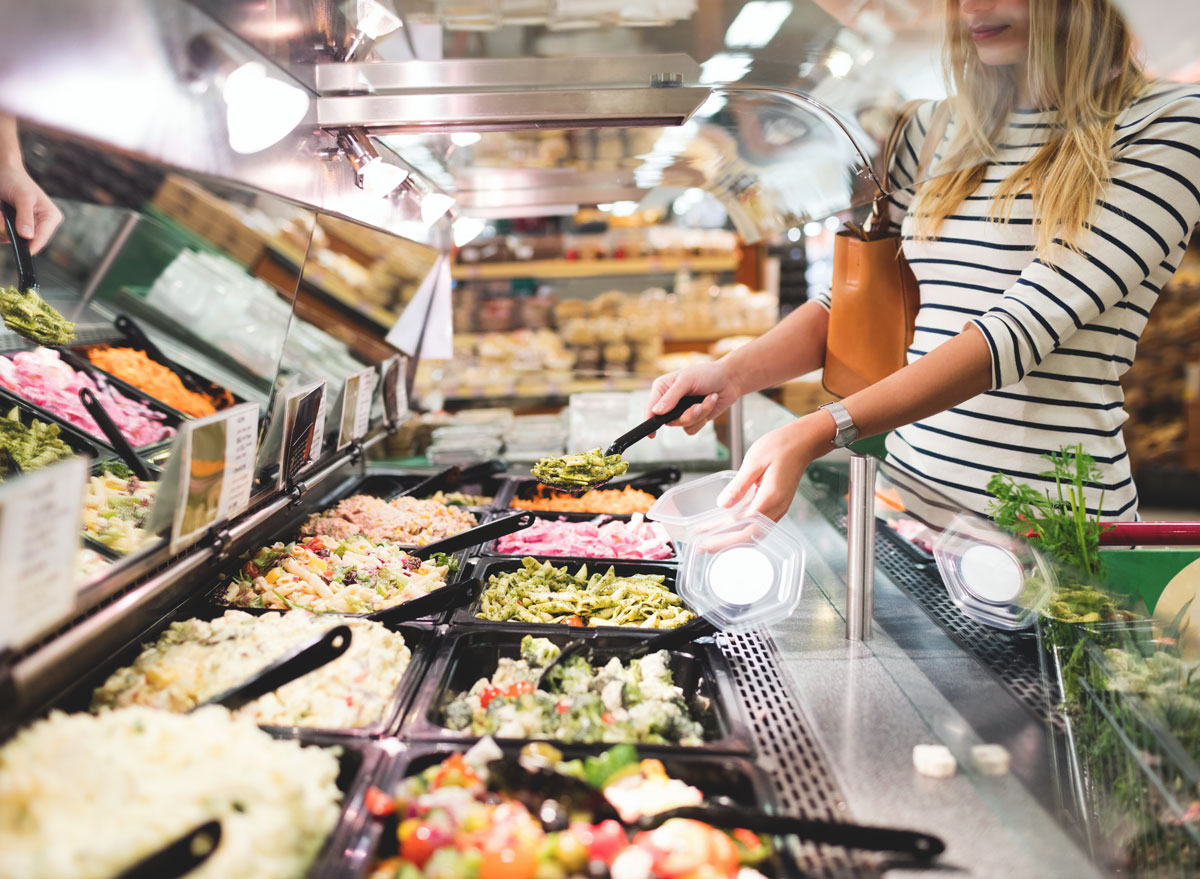
The salad bar may be convenient, but its healthiness is another story. Pre-dressed salads at your local salad bar are often loaded with fattening dressings, cheese, and other unhealthy toppings, and other salad bar choices, from cold sesame noodles to fried chicken, are no bargain for your health or waistline. Worse yet, it isn't mandatory for fresh, prepared meals to have nutrition labels, so you may never get the full picture of what you're putting in your body. And a Consumer Reports study found that nutritional information for some salad bar items was misleadingly incomplete and missing certain ingredients. Another potential downfall: Research shows that those big containers you pick up at a salad bar translate into bigger portions and higher calorie counts, David Just, PhD, a professor at Cornell University's Dyson School of Applied Economics and Management, told Consumer Reports.
You let your kids pick.

Kids can be wonderful, smart, precocious, creative, and a delight to be around. What they're not, however, are nutritionists. When you let your kids choose foods at the store, you're not doing what's best for their health or your wallet. According to a report from the Center for Science in the Public Interest (CSPI), grocery stores intentionally put sugary cereals with cartoon characters at children's eye level to provoke requests for those cereals. It gets worse: a 2014 Public Health Nutrition study noted that most of the candy, chips, and soda in checkout aisles are placed at children's eye level and within reach.
Eat This! Tip: To avoid this happening to you, create a list together at home to make them feel like they're part of the conversation without derailing your healthy eating plan.
You purchase food from bulk bins.
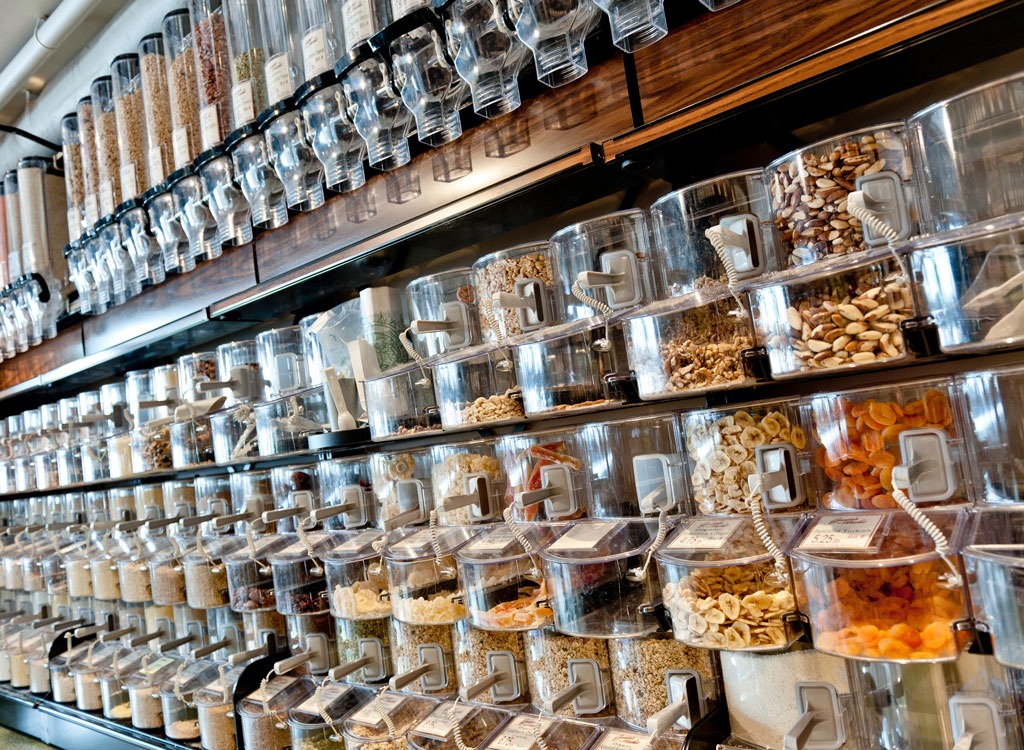
Buying from bulk bins can be an easy way to get great deals on healthy staples, like nuts, oats, and alternative flours. The downside? We often don't pay attention to how much we're eating when grabbing snacks from a large container. If you do buy in bulk, try portioning your food out in jars when you get home so you always know how much you're eating.
You impulse shop at the checkout aisle.
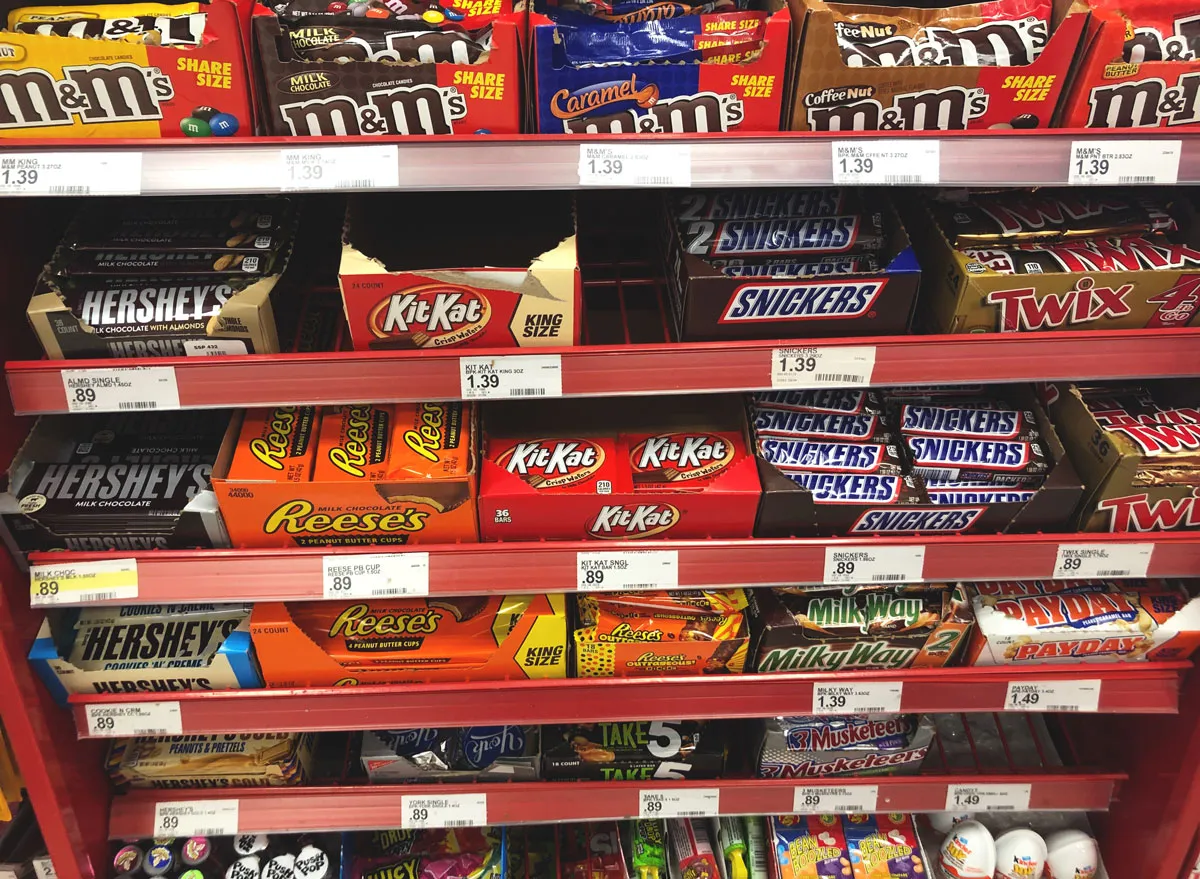
Those snacks at the checkout counter are designed to seem particularly appealing, but they're also a poor choice when it comes to your health. According to a report titled "Availability of Healthy Food Products at Check-out Nationwide, 2010–2012," by University of Illinois researchers, 97 percent of supermarkets push candy and 93 percent sell sugar-sweetened beverages at checkout. If you're battling a food craving or are feeling the need to treat yourself when you're standing at the checkout, opt for a magazine instead—that craving will pass once the unhealthy food is out of sight.
You shop when you're too full.
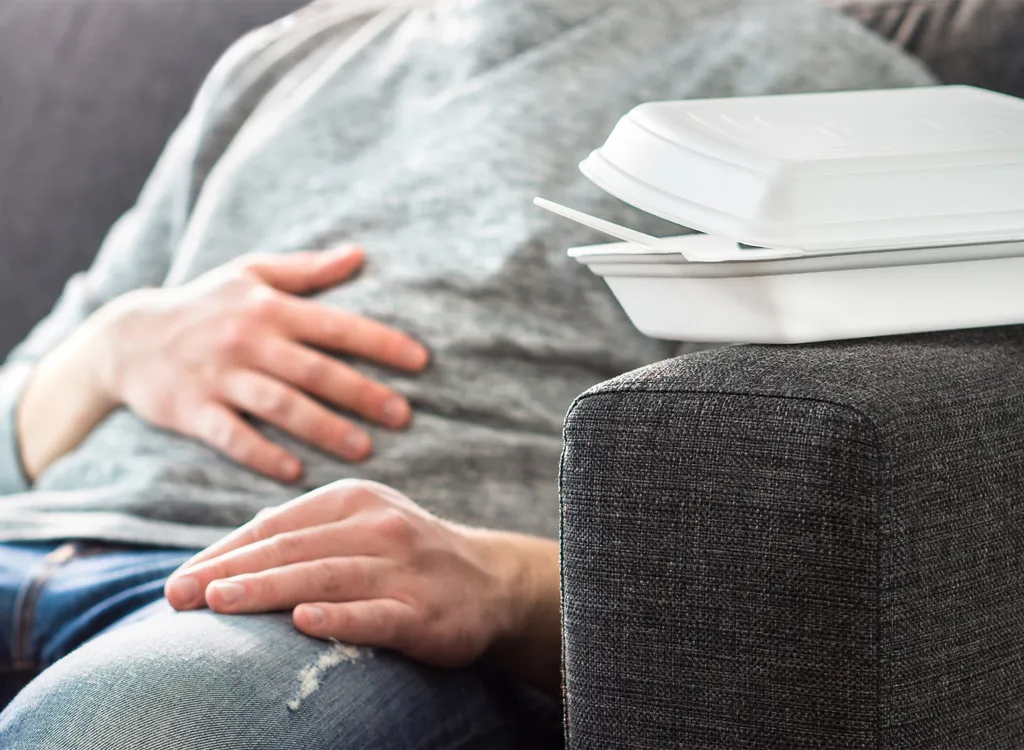
While shopping when you're famished can lead to poor food choices, shopping when you're stuffed isn't a much better choice. Shopping when you're full can make all those healthy foods you're usually eager to load your cart with seem less-than-palatable, making you more likely to buy less than you need or opt for less healthy choices.
You only buy for one meal.

Sometimes, you really just want chicken cordon bleu or a quiche, and you're determined to get it, even if that means making an extra grocery trip. However, indulging those food whims can not only put a major dent in your budget, but it can also make it harder to reach your weight loss goals. (That's not to mention all the extra time you'll have to spend in the store if you have to shop every day.) Instead of buying ready-made food for one meal at a time, buy for the week and do meal prep; research published in the American Journal of Preventive Medicine suggests that individuals who regularly prep their meals (instead of just buying solo servings of convenient stuff) eat a healthier diet.
You shop for items at eye-level.
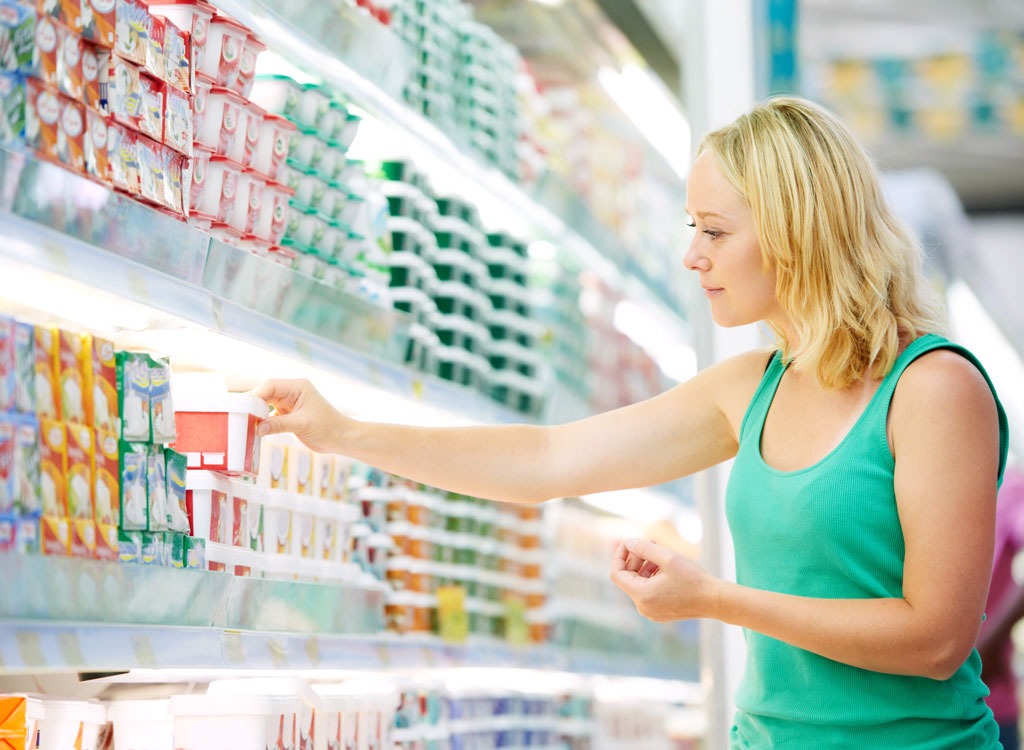
There's a reason why everything at the grocery store looks so tempting when you're shopping: it's supposed to. Grocery chains put items they want you to purchase in high volume at eye level so you're more likely to buy them. It works regardless of the healthfulness of the item: when Frito-Lay experimented by placing its healthier products, like baked chips and peanuts, at eye level, they were popular with customers, according to the CSPI. The downside is that these eye level products tend to be convenience foods and sugary snacks that contribute to weight gain.
You choose items based on the 'Organic' label.
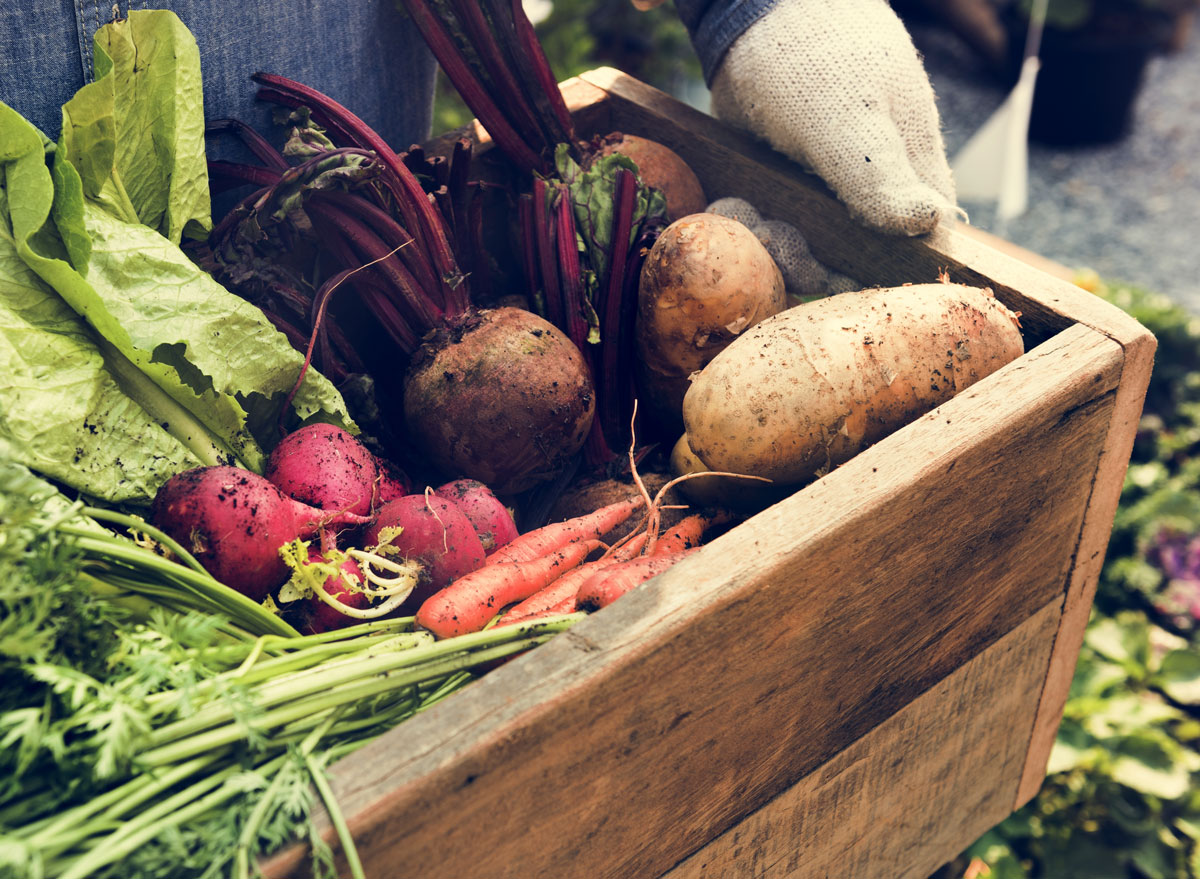
Eating organic produce can be a wonderful choice for the health of the planet. However, that doesn't mean that every organic food item on your grocery store's shelves is automatically a health food. Organic or not, a cheese puff is still a cheese puff. Besides, opting for food just because it's organic also doesn't mean you're better off: an Annals of Internal Medicine review found little evidence of significant health benefits from organic foods.
You shop at the deli counter.
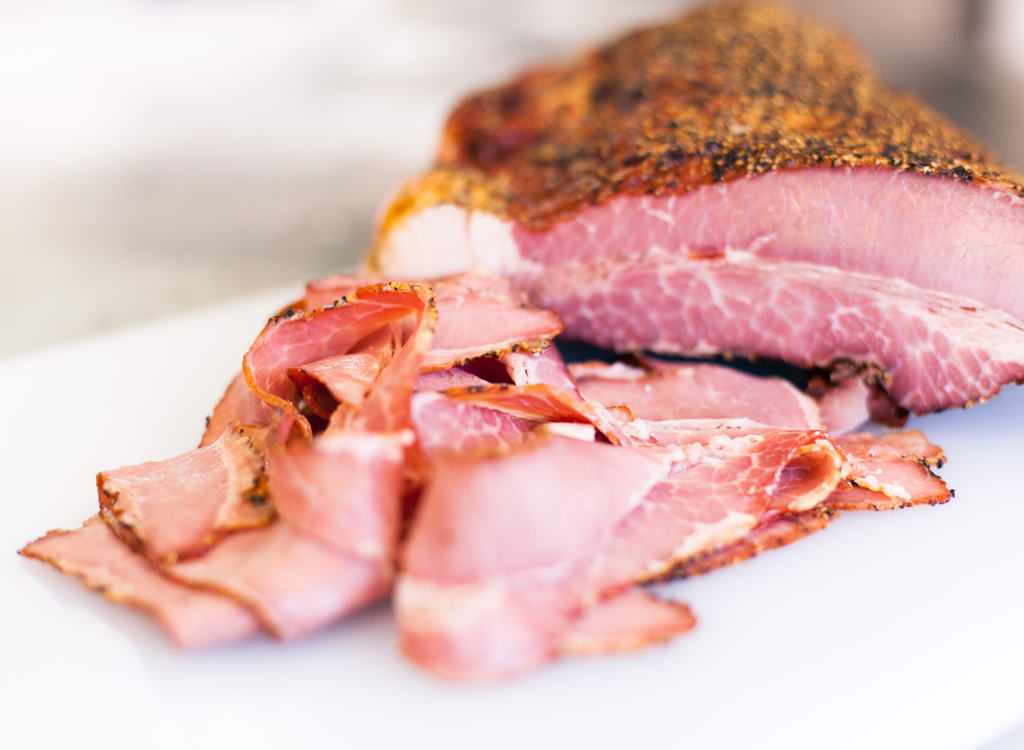
You may think you're shopping healthier by getting your food at the deli case, but that's not always true. Just like at the salad bar, when you buy food from a store's deli, you're not presented with the same nutrition info that you get on a regular package, meaning you're more likely to be eating extra calories without even realizing it. That includes prepared salads (with extra mayo) and deli meats, which contain high sodium levels that can make you bloated.
You think 'whole wheat' is healthy enough.
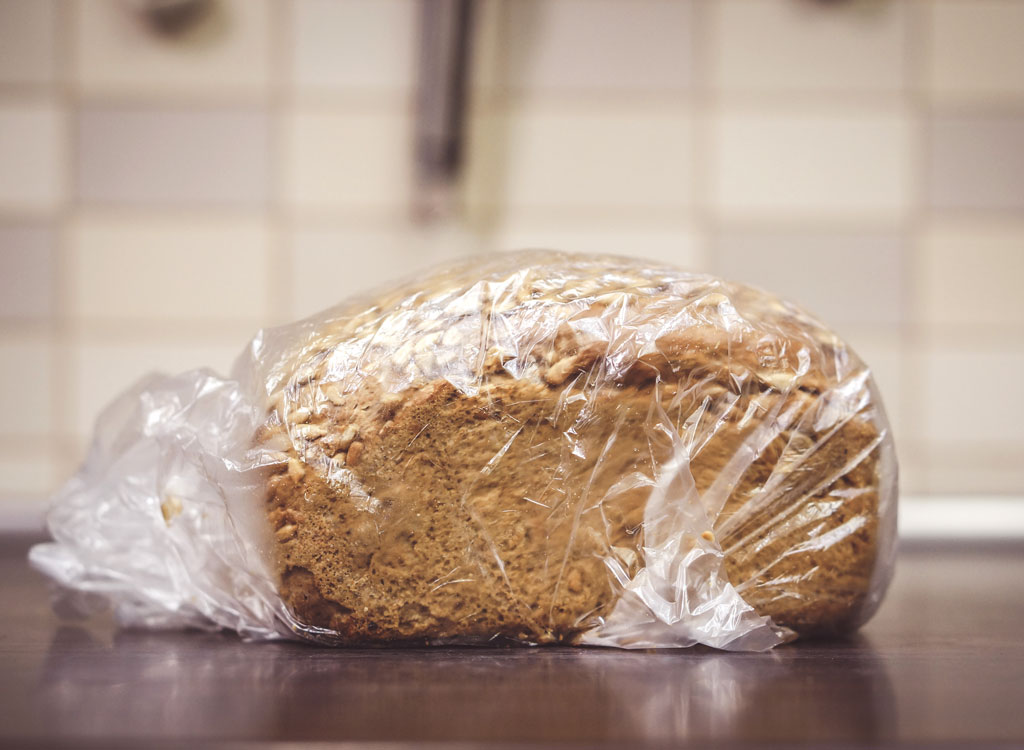
If you're wandering down the bakery, don't stop at the first loaf you see with "whole wheat" on the label. Whole wheat is different from "100% whole grain," and it can be the difference between picking up a loaf with 5 grams of sugar per slice (and made with refined white flour) and one that's low in sugar and contains upwards of 5 grams of fiber per slice. The benefits of a high fiber diet include helping you lose weight, while a low-fiber, high-sugar diet will only help you gain weight.
You buy a large amount of food from the freezer aisle.
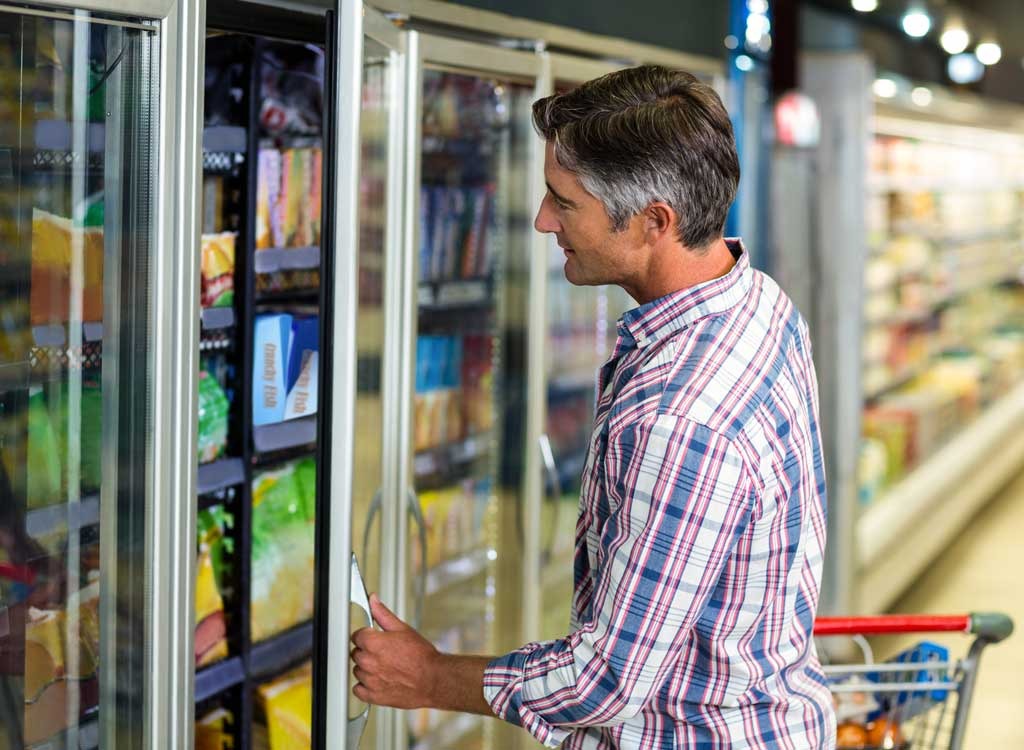
Yes, frozen foods are extremely convenient, but many of them are teeming with sodium because it acts like a preservative. Sodium will not only cause you to gain water weight by retaining water and bloating your stomach, but consuming high levels of sodium in your diet will also cause high blood pressure and heart problems. Keep freezer items to a minimum or read labels to make sure you're keeping your sodium intake to lower than 30 percent of your daily value per meal, or 760 milligrams per serving.
You shop late at night or while stressed.

Though people can resist temptations, Dr. Deborah Cohen tells the CSPI that "factors such as stress, distraction, and fatigue can make people vulnerable to eating on impulse." Paired with the widespread unhealthy foods you can find in the grocery store, and you have a recipe for lapses in temptation, "that can result in meaningful increases in caloric intake."
You shop on end-caps.
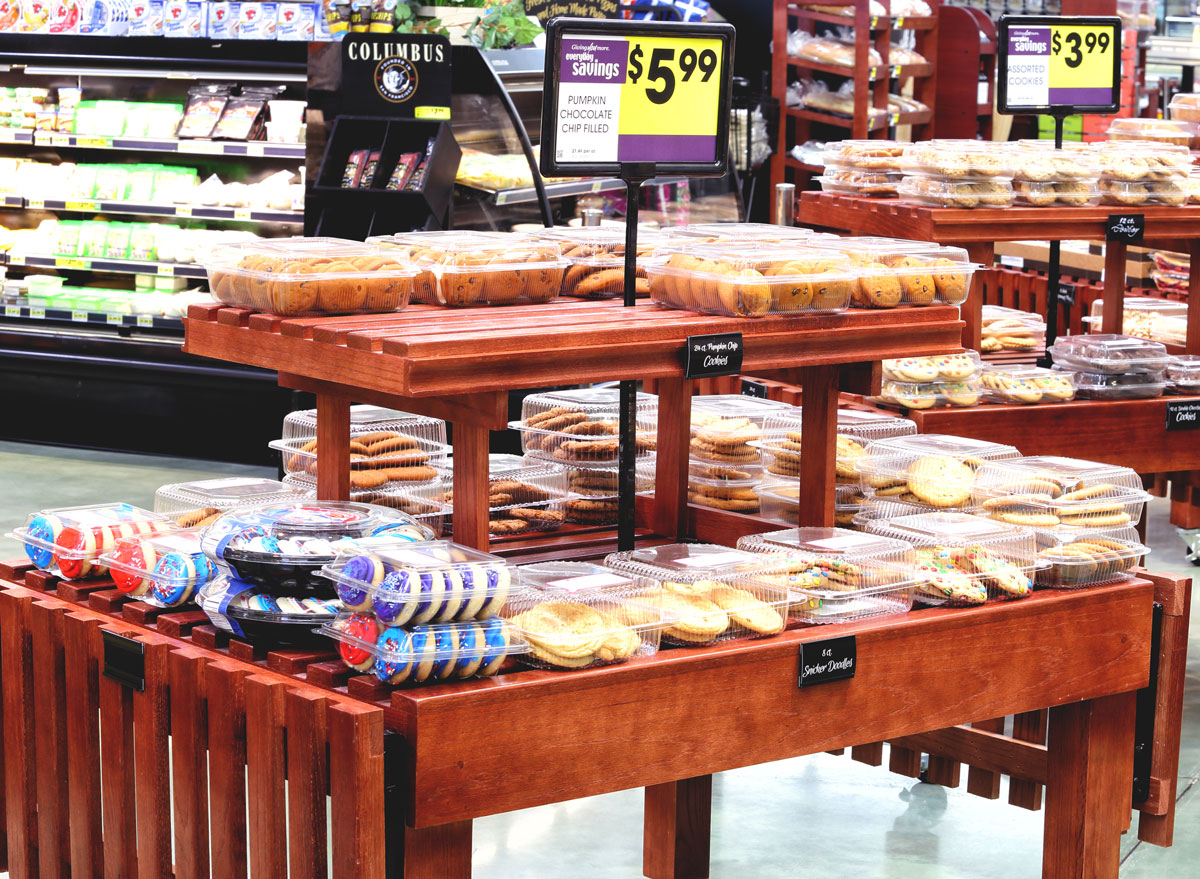
You know how you'll be pushing your cart around a grocery store on your way to a specific aisle when you stop at the end cap because something caught your eye? Manufacturers, like Coca-Cola and PepsiCo, will stock the ends of aisles with junk food that you otherwise would only see if you went down a center aisle. It's not just end-caps that are riddled with junk. You'll also find products these companies want to push in the middle of an aisle or heavily-trafficked areas. To make matters even worse, supermarkets are smart and will "cross promote" items. So while you might be on the lookout for strawberries, you may end up with strawberries, whipped cream, and angel food cake. Stick to your list to avoid these junk foods.
You buy sale items.
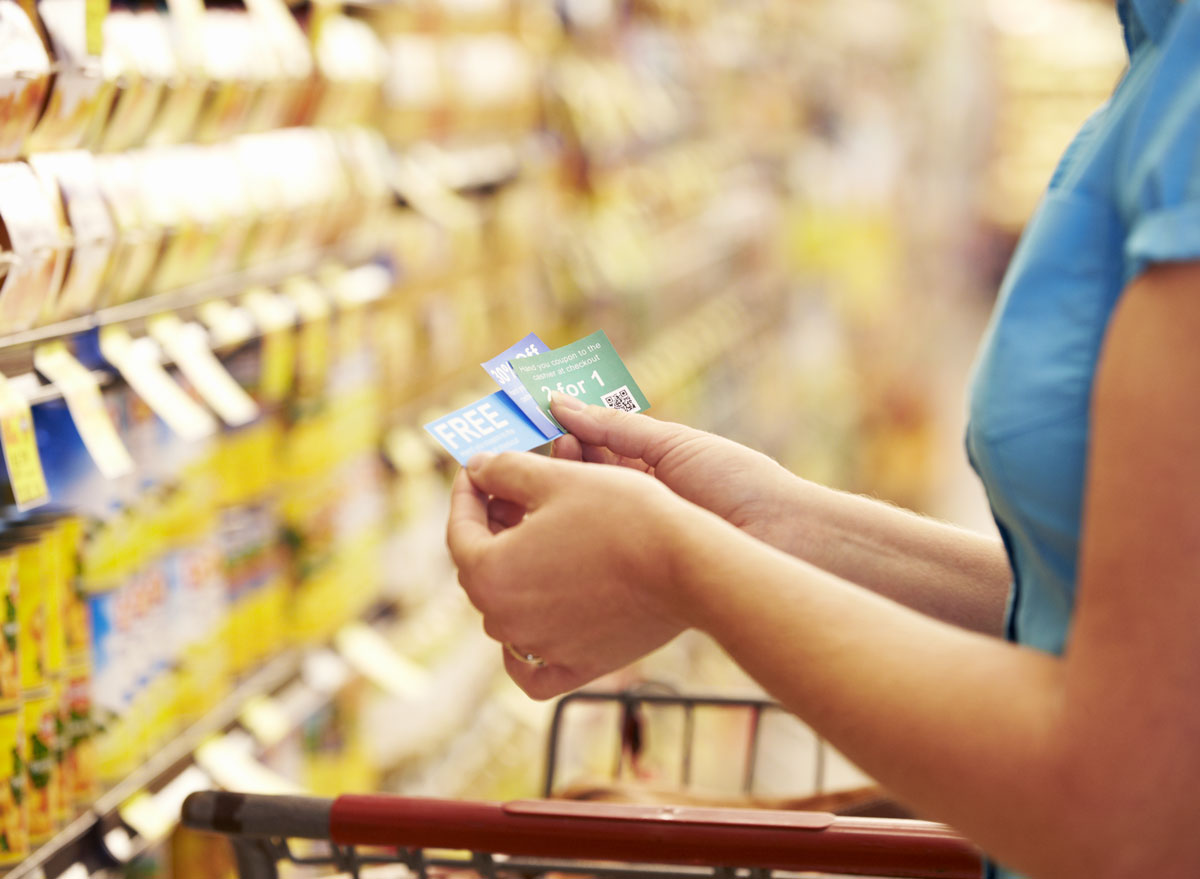
Yes, you're saving money, but you won't be saving calories. An American Journal of Preventive Medicine study confirmed that because shoppers are highly motivated by lower prices, both manufacturers and retailers manipulate and influence customer choices by putting products on sale and offering coupons. And—you guessed it—these coupons can get you to buy products you otherwise wouldn't, and most of the time, they're not going to be great for you.
You buy the 'premium' products.
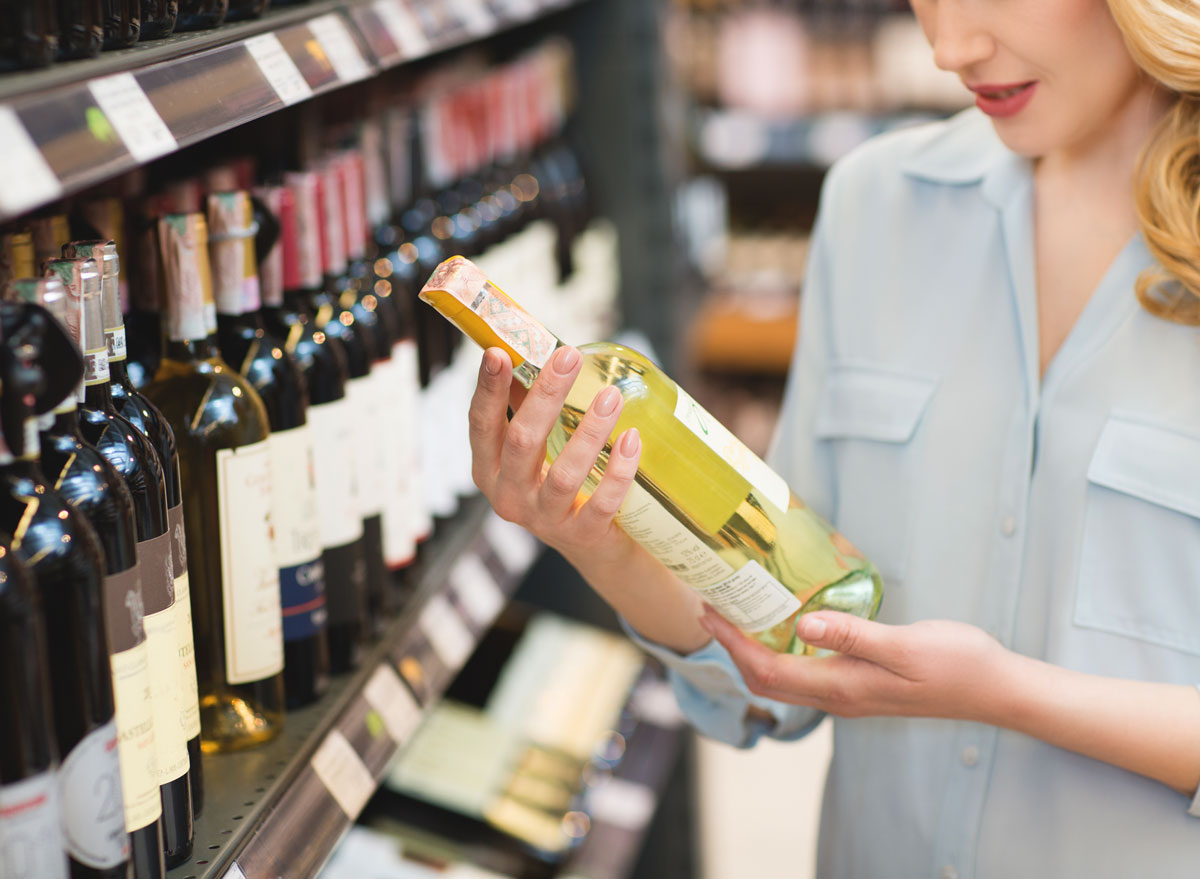
Treat yo' self! Really, you can, but don't do it just because an item is expensive. A Journal of Consumer Research study found that high prices can be used to signal a "premium" product, which can entice you to indulge in a food more so than a generic brand. (It also increases your enjoyement of a product.) So while that $40 bottle of wine might sound enticing, at least make sure you're sticking to portion control while serving.
You fall for buy-one-get-one deals.
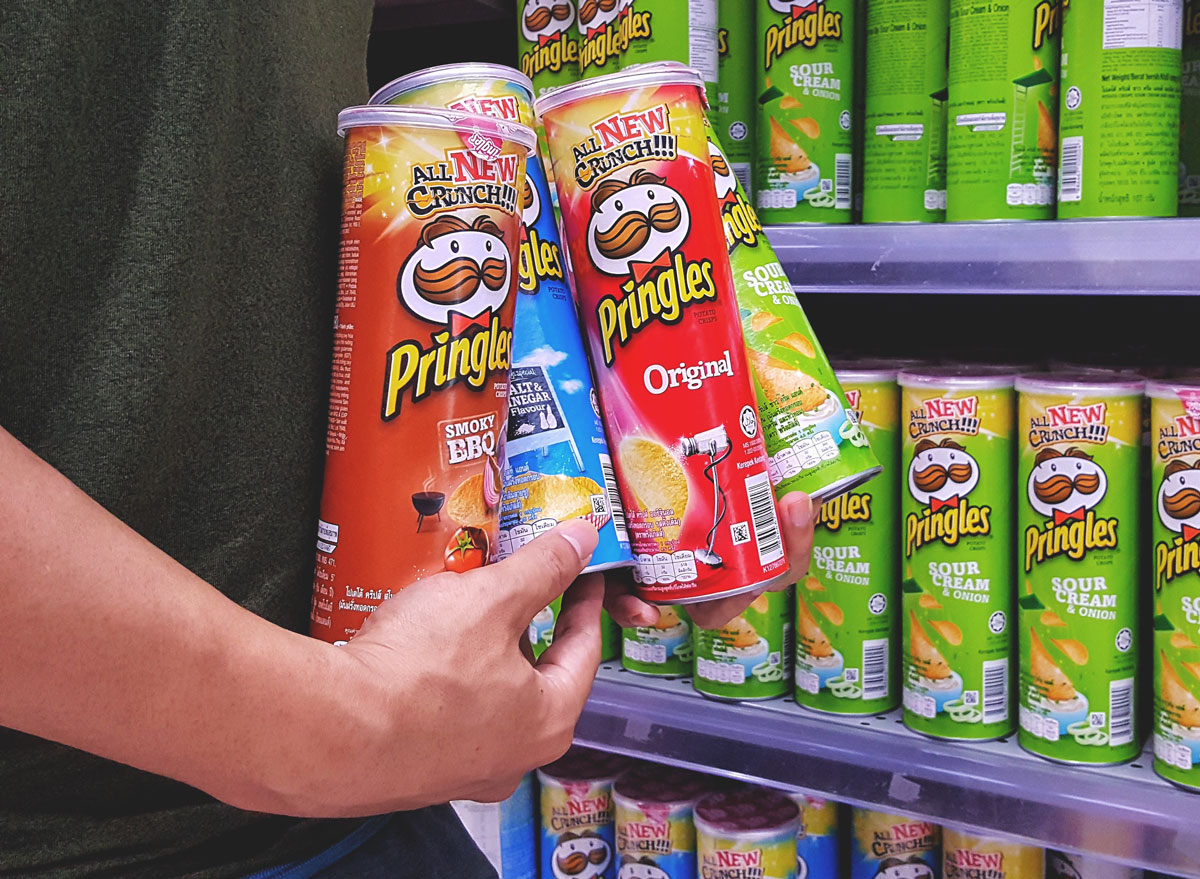
It's pretty straightforward: did you only need one box of cookies? Probably. Did you get two because there was a buy-one-get-one special? Yes. The CSPI reports that this marketing tactic used in grocery stores is extremely successful, and customers ultimately buy more than they plan—which means you have more calories to consume. Here's a useful tip: many times, like at Whole Foods, you only need to buy one product and you'll still get the deal.
You buy multi-packs.
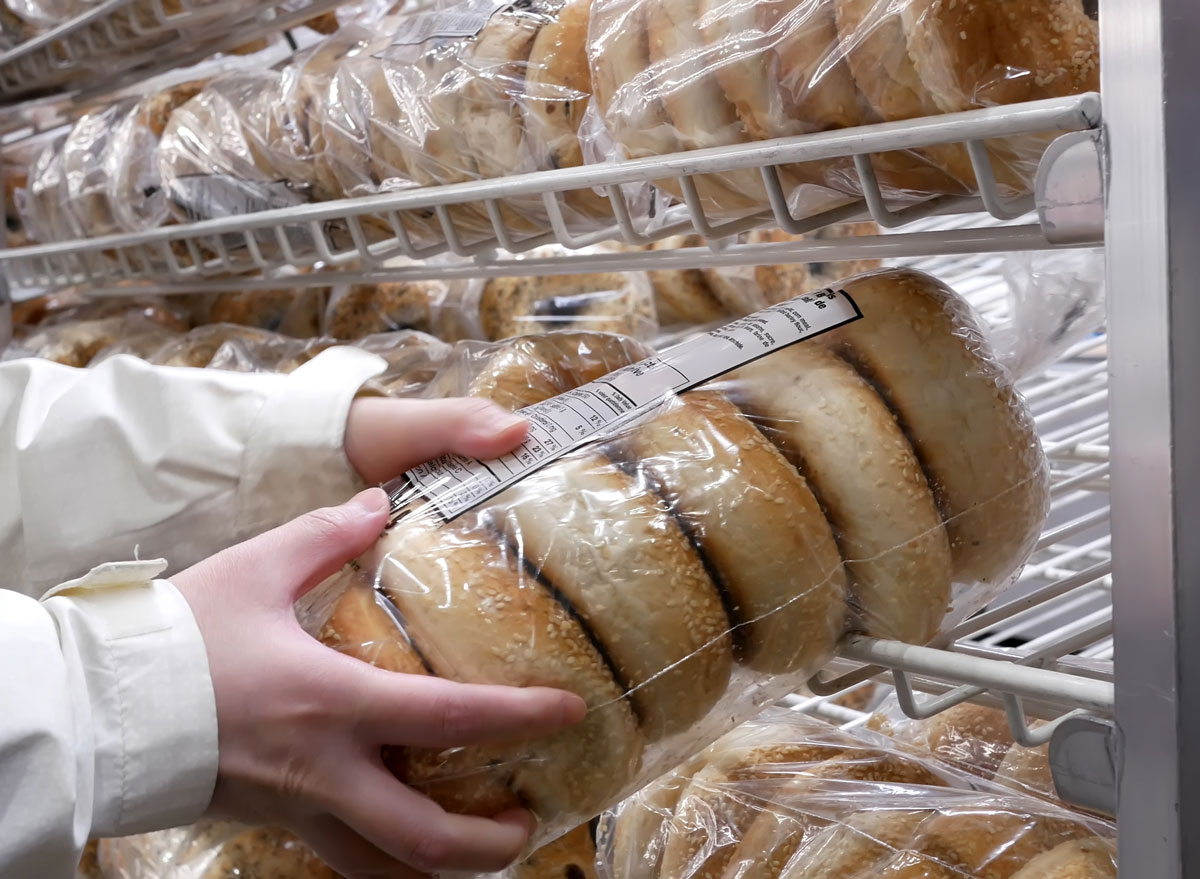
Similar to the tip before, if you only need one can of soup, opt for one. Multi-packs of soup, chips, candy, and other junk foods, can leave you with more food and calories than you budgeted for.
You opt for a cart instead of a basket.
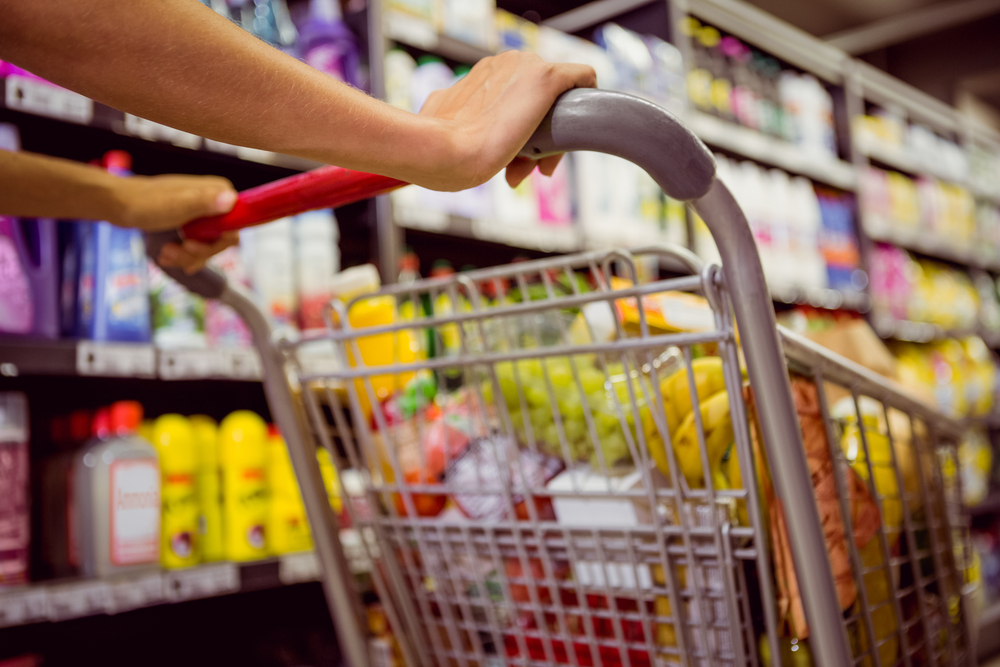
Of course, if you're doing a weekly grocery haul, it's probably for the best that you grab a cart; however, if you're just stopping in to grab a few items, make sure to grab a basket. If you have to carry a basket on your arm, you're more likely to be deterred from buying more than you planned for because the weight of your groceries will take a toll on your tired arms. For more tips to get the most out of your food shopping, don't miss these best supermarket shopping tips ever!
